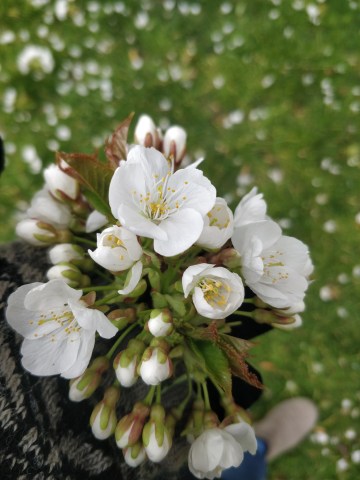I’m Really Sorry, A Post About Brexit

If you are as bored of Brexit as me, look away!
Unfortunately, there’s still a tonne of stuff to stay, including the regular cry of “oh God what’s our government doing now?!” With every week that goes by people get angrier and angrier, and the consequences of this are going to be felt in the UK for years to come.
However there are a few specific things that I wanna poke at that just keep on bugging me….
1. A second referendum is undemocratic.
I get where this comes from, in as much as we haven’t really enacted the first referendum results. And one of the reasons we haven’t is because to enact it under these current conditions and terms will, according to our own government, run the risk of food and medicine shortages, not to mention tank the UK’s economy and diplomatic position. None of which was what was promised at the first referendum. According to Leave, we were victims of a tyrannical super-state in Brussels that was keeping us from our full sovereignty and potential, and flunking out of the EU would result in a fully-funded NHS and Britain being great again. Attached to this was a fear of immigration – we had to stop people coming to this country. This despite the fact that immigrants statistically give more in tax and ask less in benefits from this country than the average UK citizen, while often doing brutal jobs such as agricultural worker, builder, or the horrendously under-paid role of care worker, as well as providing the highly qualified professional backbone of our under-staffed NHS. Culturally speaking, diversity does not weaken our society; do your children really forget the legend of King Arthur because they know about Divali? Or does our diversity show us in clearer, brighter colours the stories that are the backbones of our lives?
Three years later, we can see what leaving the EU really means; and with employment at its highest since the 1970s and with migration still holding stable, it’s probably fair to say that immigration is not the bugbear of doom people thought it was. Nor for that matter is a question of sovereignty. We set our own taxes, have our own laws, send our own MEPs to Brussels where historically the UK has won all but a tiny fraction of the thousands and thousands of laws it’s voted on in the last 20 years. We are also very good at ignoring laws we don’t like, especially when it comes to environmental legislation. Has the UK breached air pollution standards? Shucks. Face: care.
Instead of walking away from a tyrannical overlord hell-set on making us drink clean water, we appear determined to reject worker’s rights, human rights and environmental and food standards as all being… well… un-British.
The promises of the first referendum were a lie. And don’t get me wrong – the Remain campaign was shockingly poor, and Remainers such as myself can very easily be accused of hypocrisy and gross stereotyping.
However, we have a general election every 5 years to allow us to change our minds about our ruling parties; or as feels the case at the moment, every 2 years. It was considered worth asking the people of the UK what they thought in 2016; now we have more information and parliament is gridlocked, how is it undemocratic to ask again in 2019? The only reason against it is if people’s minds have changed; and that too is a truth no less true than the Leave vote winning in 2016. Voting is the point of an open democracy.
2. Experts – what are they good for?
One of the side-effects of this has been cherry-picking of facts by either side. Some of the most egregious have been accusations on the Leave part of left-wing/Remainer bias in basically…. everything. Every single publication, newspaper or even civil service bulletin that says anything people don’t want to hear. ‘Fake news’ is thrown at experts and professionals who are offering a perfectly balanced view, or even saying it’s too complicated to pronounce on. This is not debate; nor is this critical thinking. It is pure cognitive bias.
Hell, Remainers are guilty of it too. I went on the Brexit march a few weeks ago, and was very happy to believe that a million people were there. FullFact.org reported it was more likely to be 300-400,000 (a figure leapt on by Leavers as proof that Remainers lie, rather than it’s hard to count crowds) while Remainers immediately set about arguing that FullFact is not an independent fact-checker at all, partly because one of its founders used to give money to the Conversative Party. All this in bullish defiance of methods that can be critically assessed.
We all want to believe that we’re right. All that we’re doing at the moment is rejecting any evidence to the contrary, and it is one of the most dangerous things our society has ever, ever done. It is not just a political crisis; it is ther same attitude that fuels anti-vax movements, climate change denial and “alternative” science which endangers lives. And it fuels hatred against others, because there is no compromise or mutual understanding, when no one can agree on even the most basic notions of what is true.
3. Britain has “gone it alone” before – why not again?
This is one of the most egregious and offensive opinions I’ve seen thrown around. Ignoring for a moment the fact that collective bargaining (which is what the EU does when negotiating trade deals) is always more powerful than negotiating as an individual state, the argument that Britain is better off by itself usually harks back as far as, heaven help us, the 1940s. One of the reasons for this is that until the UK joined the EU in the 1970s it was often regarded as the sluggish, sick man of Europe – a fact which is unhelpful to the current argument.
“Not only did we do fine without Europe, but we threw facism out in WW2!” is the dreaded opinion on display.
As someone with a love of history, I find this particularly painful. Firstly, we’re talking about events nearly 80 years ago. The entire Cold War has run its course since then. Children born in 1945 have been happily drawing their pensions for years. Trying to define ourselves by this part of history, rather than simply learning from it, honouring it, is an act of backwards-looking that we have not earned.
Moreover, these claims tend to ignore the awkward truth that Britain avoided being invaded by the skin of it’s teeth. It dodged starving to death only by massive American intervention – the debts from which we only finished paying off a few years ago. Fourteen million Soviet soldiers died fighting across the continent to Berlin, and it was not the Battle of Britain that broke the Nazi army; it was Stalingrad.
And Britain had an empire.
My God we keep glossing that one over.
Britain had an empire. To everyone who says “we can go it alone like we did in WW2” – the sentence should perhaps more fairly be, “We can go it alone, just us and our imperial provinces of India, Kenya, Uganda, Nigeria, South Africa, Hong Kong, Malaysia, Cyprus, Palestine, Tanzania, Sri Lanka and the Carribean. Not to mention Canada, Australia and the then-‘co-equal’ countries of the Commonwealth.”
It has often been said that Brexit is a cry of pain. Pain at a country reeling from years of austerity and inequality; of a government that doesn’t appear to govern for anyone except a tiny minority. And pain too at the loss of an empire, a power and a prestige which until recently was taught as part of our identity, rather than a piece of our past.
I’m not sure how much I buy this argument, in that it is frequently deployed to belittle the genuine views of Leavers – “don’t you worry, it’s not that you’ve thought about this, you’re just in pain”. But whatever happens, we owe it to ourselves and each other to embrace complexity and learn from the truth, even if we don’t want to hear it.
If we crash out of the EU, the country will hurt. If we stay in the EU, the country will also be in pain – pain of people unable to talk or recognise the validity of each other. So while I want to Remain in Europe very, very much – as much for cultural reasons as anything else – what I want more than anything is for us to reason again, with each other, rather than in brutal opposition.





